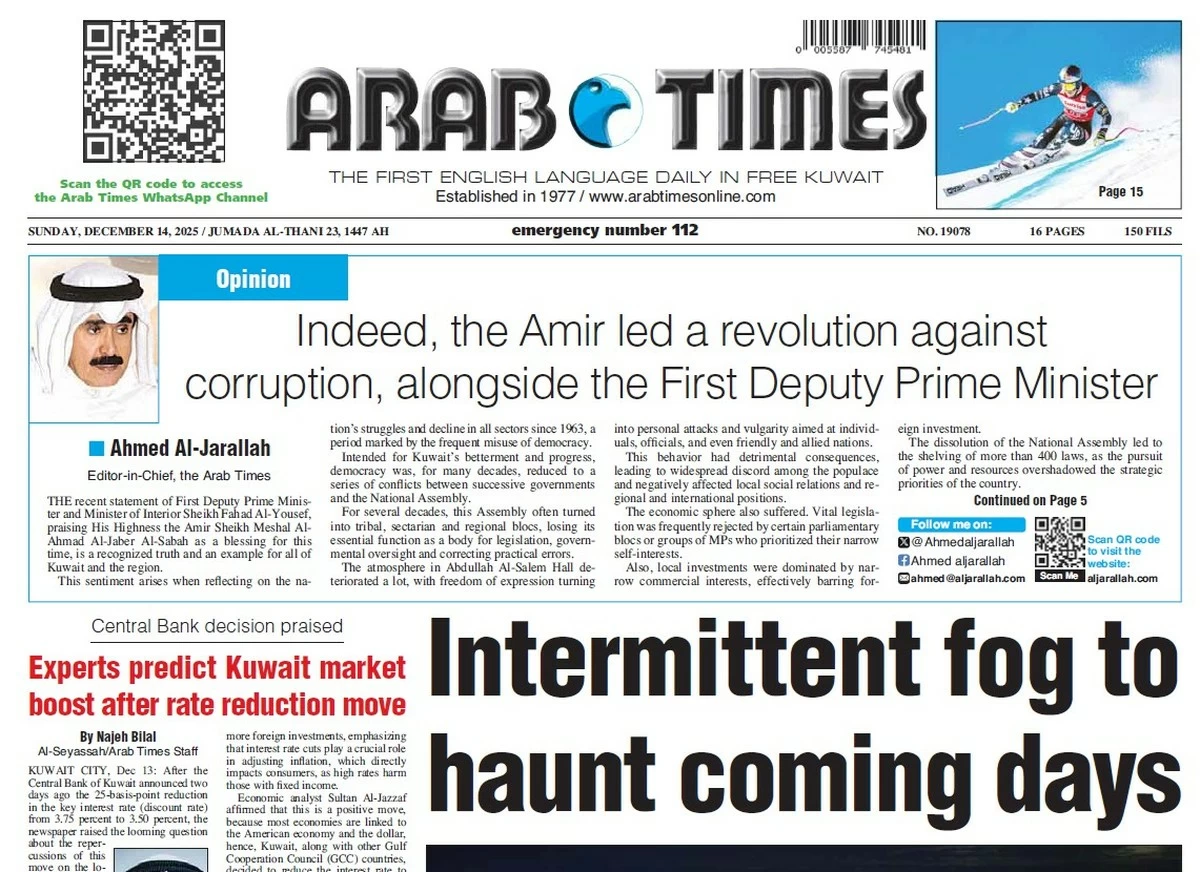KUWAIT CITY, Oct 12: The International Monetary Fund (IMF) has recommended that Kuwait introduce value-added tax (VAT) and excise taxes as a key measure to increase non-oil revenue, reports Al-Seyassah daily quoting reliable sources. The IMF has emphasized the need to reduce current spending by rationalizing the public sector wage bill and gradually phasing out the substantial energy subsidies, replacing them with targeted support for vulnerable groups.
In its latest report, the IMF projected a contraction in the Kuwaiti economy for the second consecutive year, forecasting a decline of 3.2 percent in 2024. The IMF also noted that Kuwait’s budget had shifted from a surplus of 11.7 percent in the 2022-23 fiscal year to a deficit of 3.1 percent in 2023-24, as mentioned in a statement published by the Central Bank of Kuwait following the IMF’s annual consultations with the country. The IMF experts warned that Kuwait’s heavy reliance on oil exposes its economy to a wide range of global risks, particularly fluctuations in commodity prices, changes in global growth rates, and the intensification of regional conflicts. These risks, the IMF noted, directly impact Kuwait’s economy through shifts in oil prices and production levels.
the IMF highlighted that Kuwait’s ability to diversify its economy away from oil depends on the successful implementation of financial and structural reforms. These reforms are essential to enhancing the economy’s resilience and stimulating private investment. The experts also praised Kuwait’s exchange rate policy, which ties the Kuwaiti dinar to a basket of currencies, as a stable anchor for the country’s monetary policy. This system has helped keep inflation low and stable for many years. Regarding labor market challenges, the IMF stressed that economic diversification will require significant labor market reforms.
The IMP pointed out that to encourage Kuwaitis to seek employment in the private sector, there needs to be better alignment of compensation and working conditions between the public and private sectors. Improving the quality of education and aligning it with the needs of the private sector would also enhance productivity and support economic diversification. The Fund mission welcomed the Kuwaiti government’s plan to expand corporate income tax to include all large domestic companies. They also highlighted the importance of establishing a medium-term fiscal and macroeconomic framework, which would strengthen the government’s ability to analyze and forecast fiscal policy, including setting a public debt ceiling and a budget balance target for the non-oil sectors. Finally, the IMF delegation emphasized the urgent need to pass a law governing public liquidity and government financing (“public debt law”) to ease the funding of public finances. The delegation members noted that the Kuwaiti authorities are committed to implementing reforms to transition to a dynamic and diversified economy. Achieving this goal, however, will require significant fiscal adjustments on both the public spending side and the non-oil revenue side.



